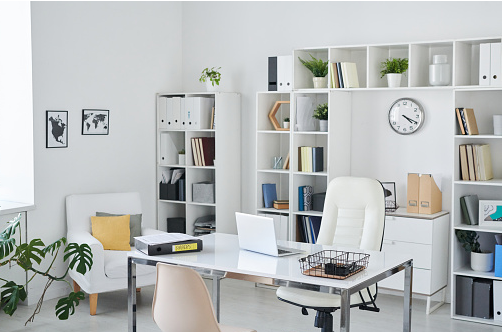The coronavirus pandemic has transformed lives like nothing else in modern times. Restrictions brought in to stop the spread of the virus means we’re now doing things differently – especially in the short-term. For many of us, that includes how we work. By being asked to stay at home, more people are now working from home – and it’s a trend that looks like it’s here to stay.
Not everyone, however, is lucky enough to have enough space to cope with home working on a longer-term basis. So, what can you do as a homeowner? If there’s no other room or space you could convert into an office, could an extension be the answer? It’ll need some sensible financial planning – but it could be the opportunity to create a dedicated space that works for your work.
Why think about getting an extension?
First, an extension or loft conversion could add value to your home. That could be important if you decide to sell up at some point in the future. It’s obviously not something you’re bothered about right now. It could, however, be nice to know in future.
A more convincing reason is that adding an extension to your home gives you a chance to add space for an office – without losing it from elsewhere. It also means you can start from scratch with the design. So, you can create a truly dedicated space where you can work.
Your extension options
Your options depend on the type of house you live in, what falls within your budget and if you are subject to any special planning conditions. And don’t forget your personal preferences too. For a space that you’re likely to be sat in for hours each day, you have to want to be there.
More often than not, it’ll come down to a choice of extending up or out. You may even have an option to extend down too. Things to think about here will include the shape of your roof (for a loft conversion), natural light (for a cellar conversion) or space (for a back or side extension).
What can add costs to an extension?
An extension is a major home-improvement project. And the cost of getting yours done is likely to reflect that. There are, however, some factors to think about that can keep those costs down and still give you an amazing new space in which to create a home office.
Some of those factors include how much extra plumbing or electrical work is required; whether you have to move out and pay rent elsewhere; and the materials you want to use. There are a number of ways you can keep the extra costs down to a minimum if you plan ahead.
The design of your office space
Both part of the initial design process and once the extension is complete, kitting out the home office can be really fun. It’s a stage at which your personality comes to the fore, while ensuring you have everything you need to work effectively and productively from home.
Lighting, storage, plants, windows and even other purposes – the list is almost endless. It was mentioned above but is worth repeating. An extension can give you a blank canvas for creating your home office. And that means the freedom to create a space you’ll never want to leave.
Even when the clock hits 5pm!







